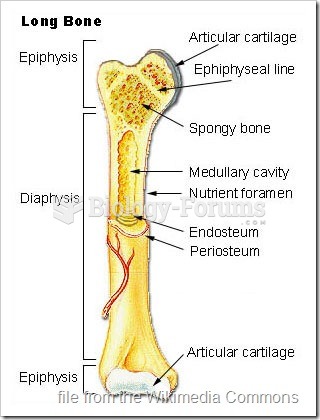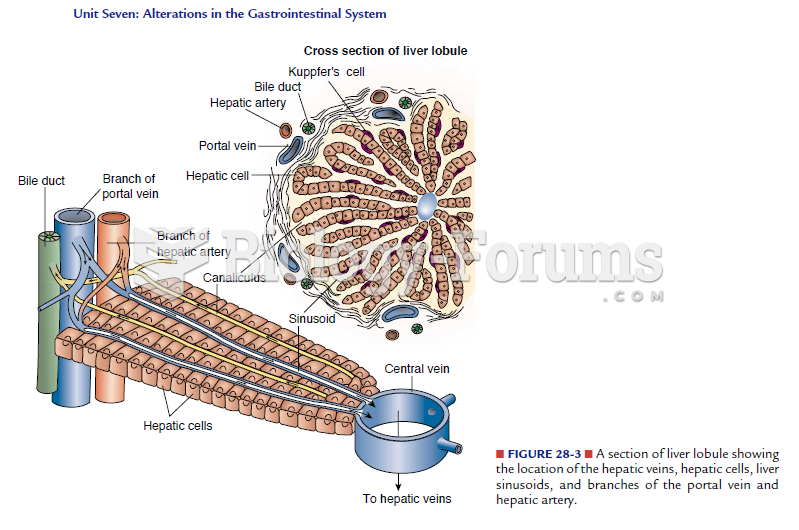This topic contains a solution. Click here to go to the answer
|
|
|
Did you know?
If all the neurons in the human body were lined up, they would stretch more than 600 miles.
Did you know?
In ancient Rome, many of the richer people in the population had lead-induced gout. The reason for this is unclear. Lead poisoning has also been linked to madness.
Did you know?
In 1844, Charles Goodyear obtained the first patent for a rubber condom.
Did you know?
Amphetamine poisoning can cause intravascular coagulation, circulatory collapse, rhabdomyolysis, ischemic colitis, acute psychosis, hyperthermia, respiratory distress syndrome, and pericarditis.
Did you know?
Vital signs (blood pressure, temperature, pulse rate, respiration rate) should be taken before any drug administration. Patients should be informed not to use tobacco or caffeine at least 30 minutes before their appointment.
 A vasectomy, showing how each vas deferens is tied off in two places and then a section is removed f
A vasectomy, showing how each vas deferens is tied off in two places and then a section is removed f
 Meningocele. (a) A meningocele is a herniation of the meninges, usually associated with the spinal c
Meningocele. (a) A meningocele is a herniation of the meninges, usually associated with the spinal c





